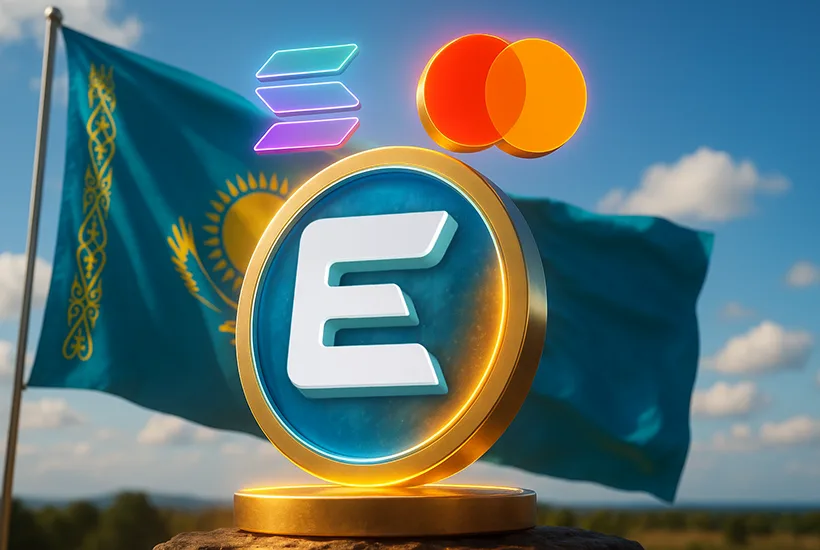- Kazakhstan’s launch of Evo (KZTE) marks the country’s first stablecoin denominated in its national currency, tenge.
- The stablecoin is developed in collaboration with Solana, Mastercard, Intebix exchange, and Eurasian Bank.
- The project is live within the regulatory sandbox, meaning it’s being tested under supervision and rules set by the National Bank of Kazakhstan.
Kazakhstan’s National Bank announced the launch of a pilot stablecoin project named Evo, under the ticker KZTE. The coin is a collaborative effort between Solana, Mastercard, Intebix exchange, and Eurasian Bank. The announcement was made as part of the central bank’s Digital Assets Regulatory Sandbox, intended to foster innovation while maintaining regulatory oversight.
Evo (KZTE) is pegged 1:1 to the Kazakhstani tenge, the country’s national fiat currency. It is built on the Solana blockchain, chosen for its speed, low transaction costs, and robust infrastructure. The stablecoin is issued by Intebix, a local licensed crypto exchange, along with Eurasian Bank, under supervision from the National Bank of Kazakhstan.
Newsletter
Get weekly updates on the newest crypto stories, case studies and tips right in your mailbox.
Evo’s use cases & purpose
Kazakhstan’s first national stablecoin, denominated in tenge, intends to bridge the gap between the crypto world and traditional finance. Expanding the crypto-fiat channel will make it easier to convert between crypto assets and tenge within regulated environments. Users may be able to use cards linked to Evo for everyday transactions. Moreover, this will enable cross-border payments and connections with global stablecoin networks, partly via Mastercard’s integration.
The project is part of a broader strategy by Kazakhstan’s central authorities to build a digital asset ecosystem, promote financial inclusion, modernize the payments infrastructure, and experiment with regulated crypto and blockchain-based financial tools.
Governor Timur Suleimenov of the National Bank emphasized that Evo is the first case in which the Bank is taking a proactive role in stablecoin issuance by partnering with private and financial institutions under tight regulatory supervision. Earlier this month, President Kassym-Jomart Tokayev spoke of plans to establish a state crypto reserve and a ’CryptoCity’ in Alatau by 2026.













